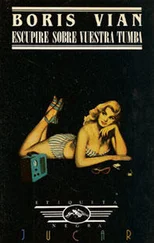Danilo Kis
Tomb for Boris Davidovich
When, after great difficulties, this book was first published in 1976, in Zagreb, Yugoslavia, it was immediately assaulted in the press by the conservative "Stalinist” elements at the top echelon of the Yugoslav literary hierarchy. The war cry emanating from the top was picked up at the bottom by Serbo-Croatian nationalists, who are traditionally pro-Russian and traditionally anti-Semitic, for the bulk of Danilo Kis characters are Jews, as is the author himself. Yugoslavia is a small country, and the politics in a small country are always big, literary politics especially. Due to this proportion, an attack against a writer becomes extremely focused. It was focused sharply enough to send Danilo Kis into “nervous shock”.
There are several topics an author may deal with which can jeopardize his well-being, and history is one of them. Depending on its proximity to the present, history provides a writer with background, content, cast of characters, and sometimes, as in the case of Kis, with the writer’s actual context. The very fact of describing historical events is regarded by history as an attempt to demote it into the past and is resisted vehemently. An historical novel becomes therefore a vehicle of time, an instrument that purports to outline the boundaries between past and present by means of estrangement from its subject, A narrative reduces history to a story and creates, by being conducted from a certain "'outside", a new time category, heretofore unknown.
Apart from the general "cause-and-effect" principle, history claims the present through its most viable extension; through ideology. Having failed to triumph at the moment of its emergence, an ideology rapidly develops what one may call a utopian complex and gravitates to timelessness. Correspondingly, a portrayal of ideology or of its carriers is considered by the latter as an attempt to pin it down, to compromise its purity, and to rob it of its future.
In the case of A Tomb for Boris Davidovich , history's claim on the present may seem all the more valid because the epoch with which this book deals isn’t really so ancient. Its author, a Yugoslav writer, Danilo Кis, describes events that took place in the first half of this century and their impact on the lives of his seven characters. For all seven the impact turned out to be the same: deadly.
Ostensibly, since the dead, by definition, belong to the past, the sheer numbers of that epoch's victims should have removed the described period, along with the ideology that animated it, deep into annals. What usually slows the passage of time and by the same token causes an ideology to linger, however, is not so much that the murderers often outlive the murdered as that the living mistakenly regard the dead in the same way as a majority regards a minority.
Apart from general geopolitical reasons, ideology plays an important role in the life of Yugoslavia, for this small country is a federal republic in more ways than one. It harbors a dozen nationalities along with a corresponding number of creeds, groups of ethnic affiliations, and an array of variously impotent political parties, with the Union of Yugoslavian Communists in charge. Needless to say, all these national groups have a lot of old and new scores to settle. Every ideological stance is therefore considerably tinged with nationalism, and vice versa. A charge of distorting the historical truth may conceal a pan-Slavic nostalgia, an anti-Semitic remark turns out to be a muffled way to voice a secessionist dream, and sometimes the only way for a Macedonian to express his disgust with a Montenegrin is to accuse the latter of revisionism. In other words, every formal charge is but the tip of a very substantial iceberg of real hatred.
From the outside the storm over A Tomb for Boris Davidovich seems all the more peculiar because this book has literally nothing to do with Yugoslavia and its internal situation. None of its characters are Yugoslav: They are Poles, Russians, Rumanians, Irish, Hungarians; most of them are of Jewish origin. None of them ever set foot in Yugoslavia. Basically, A Tomb for Boris Davidovich is an abbreviated fictionalized account of the self-destruction of that berserk Trojan horse called Comintern. The only thing that its passengers — the heroes of Danilo Kis's novel- have in common with this small country is the ideology that this country professes today and in the name of which they were murdered yesterday. Apparently, that was enough to infuriate the faithful.
So in the absence of familiar turf and being unable to argue over the book's substance (for fear of calling too much public attention to it), those faithful, led by the then chairman of the Yugoslav Union of Writers, went on assaulting. this book on literary grounds and accused its author of plagiarism. The list of allegedly plagiarized authors was impressive and included Aleksandr Solzhenitsyn, James Joyce, Nadezhda Mandelstam, Jorge Luis Borges, the Medvedev brothers, and others.
For one thing, an author capable of aping writers so diverse within the space of a 135-page novel deserves every kind of commendation. Also, unsound as it is, this list reveals something important about the accusers themselves: their between-the-chairs non aligned cultural stance, a kind of missing-Iink position between East and West. However, precisely because of their provincialism, with its weakness for generalization and for treating all remote objects as concepts or symbols, this list deserves more than simple mockery.
It is understandable, for instance, why they mention Joyce: One of Kis's characters is Irish, and even for a Yugoslav party official, Joyce today is a synonym for Ireland as well as for Western culture's decadence. The presence of Borges is of a Iess obvious nature and is intended to compromise the book stylistically by trying to reduce the vignette technique that Kis employs in his cautionary tales to a mannerism borrowed from a remarkable Argentinian, but this is utter nonsense. Kis is a great stylist, and the fabric of his writing has more in common with Franz Kafka or Bruno Schulz or with the writers of the French roman nouveau than with anyone in the Third World. Besides, to attack Danilo Kis's prose in A Tomb for Boris Davidovich is a kind of delayed reaction: If any thing, his writing here is a lot more Sparse than in his Garden, Ashes, a veritable gem of lyrical prose, the best book produced on the Continent in the postwar period. The more pertinent names on that list, in other words, are the Russian ones, yet again for reasons that have nothing to do with the book's texture and all to do with its core.
At first glance A Tomb for Boris Davidovich may indeed seem like a spin-off from The First Circle, The Gulag Archipelago (as yet unpublished in Yugoslavia), Nadezhda Mandelstam’s Hope against Hope, and the Medvedev broth- ers' various writings. The point is that the bulk of the novel has to do with the fate of several people who perished during the Great Terror of the late 1930s. For an account of that the sources are unfortunately mostly Russian. With sixty million dead in the civil war, collectivization, the Great Terror, and things in between, Russia in this century has produced enough history to keep the literati all over the world busy for several generations. The aforesaid authors already belong to the second generation. The first was Arthur Koestler's, and several chapters of the Kis book bear a general resemblance to Darkness at Noon, although surpassing it in both horrifying detail and narrative skill.
The process of transforming Russian history of this period into the new mythology of our civilization is well under way in A Tomb for Boris Davidovich. What simplifies its author's task is that apart from being chronologically modern, this history also displays signs of a considerable modernism, manifested by the distinct surrealism of its metamorphoses and the utterly antiheroic nature of its archetypes. Due to the numbers involved, it is safe to say that there was hardly ever an epoch in human history when fear and duplicity were so pervasive and voluminous.
Читать дальше









